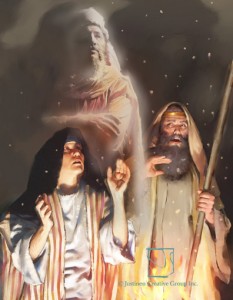Every musician has stories. It comes with the territory. Here are two of mine.
In the years before I was with After Midnight, I was a member of the Waco Musician’s Union. I was in good company – Don Henley was a member in Waco, too. The late Johnny Vanston (another drummer) and his wife headed up the union until it finally closed and was folded into the Dallas/Fort Worth Music Union about 1996.
My day job back from 1978 to 1986 was as arts & entertainment editor with the Waco Tribune-Herald, back when it was still owned by the wonderful Fentress family. One night, I was assigned to cover a fund-raiser for The Art Center. It was held in an aircraft hangar on the TSTC campus. In addition to an auction, there was a dancing – provided by a big swing band made up of top Waco musicians.
It was an easy assignment. Get a few interviews, describe the decorations, food, and auction items, wait for the final tally on the auction, then phone in the story (or physically drive back to the paper – this was the days before portable computers, of course – and write it up there). I quickly finished the interviews and was enjoying the various food stations when Johnny came up to me. The bassist for the big band, for whatever reason, hadn’t shown. Would I sit in on drums? Johnny switched to bass.
So, for the one and only time in my life, I got to play in a big swing band. We did everything – Glenn Miller, the Dorseys, Benny Goodman, Guy Lombardo – and I had a ball. The bassist never showed, I filed the story, and I hummed “Chattanooga Choo Choo” for weeks. I’m sure Bob Sadler at the paper knew, but he never said anything if he did.
Story #2:
If you’re a member of the union, periodically you’ll get offered “transcription” gigs. This is one of the things the musician’s union negotiated with the big corporate publishing houses years ago. Essentially, it offered bands the going rate to play places that otherwise couldn’t afford a live band.
In those days, I was in a country-pop band called Bits & Pieces (don’t ask). I don’t remember the names of the lead singer/keyboard player (a gal) or the lead singer/guitar player (a guy), but the bassist was a friend and college buddy from several bands in those days, Scott Pelking. One evening, the guitarist called and said we had a transcription gig that weekend at the Waco VA Hospital.
If you’ve never been to the older buildings in the back of the Veteran’s Administration complex, there is an old-school amphitheater. We set up, did a sound check, and waited. After a while, nurses began to lead dozens and dozens of old soldiers into the auditorium. Some were ancient – clearly veterans of World War I. Many – too many – were grievously injured. A few were pushed into the hall in wheelchairs.
The vets crowded around the stage in front of our female keyboardist.
After a few more minutes, a bus pulled up and out came about 20 middle-aged women. I didn’t recognize any of them, but one of the nurses said that every three months, a number of women from Waco volunteered to dance with the old soldiers. Many wore the “blue stars” of Blue Star Moms – meaning they had had children who had served in the armed forces.
There were many more soldiers than there were volunteers, but each man waited patiently for his turn. On the slow songs, some of the volunteers took the men in the wheelchairs out on to the dance floor, where they slowly swayed and rocked together.
As you might imagine, the guys and gal in Bits & Pieces were speechless. We played every song we knew, especially the old ones. We played songs that I’ve never heard since, songs from the ‘20s and ‘30s. (Our two leaders had done this gig before and came prepared with massive “cheat” books.)
When the dance was over, the old soldiers filed out and the volunteers boarded their buses and went home.
I’ve never forgotten that evening, those men, those women. It was a lovely evening, but a troubling one. As the son of a career officer in the Air Force, I’m sensitive to how we as a society treat those who have given so much on our collective behalf.
Our little gig clearly meant a lot to the men who danced that night.
But very quickly I came to realize how pitifully little it was … and how little I’ve done since.

 Despite its somewhat daunting title, Gavin Weightman’s The Industrial Revolutionaries: The Making of the Modern World 1776-1914 is a bright, fascinating read. I was particularly taken with the stories about Abraham Gesner, the man who distilled a useable lighting and heating oil from coal and petroleum sludge.
Despite its somewhat daunting title, Gavin Weightman’s The Industrial Revolutionaries: The Making of the Modern World 1776-1914 is a bright, fascinating read. I was particularly taken with the stories about Abraham Gesner, the man who distilled a useable lighting and heating oil from coal and petroleum sludge. In the bleak midwinter,
In the bleak midwinter,